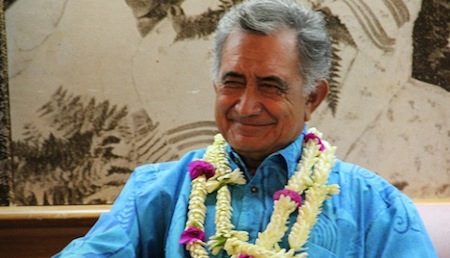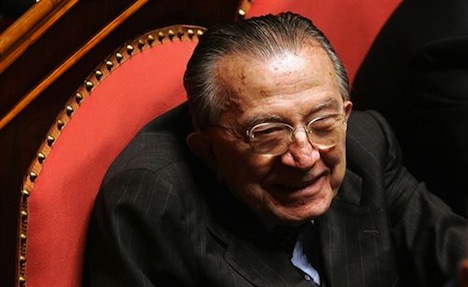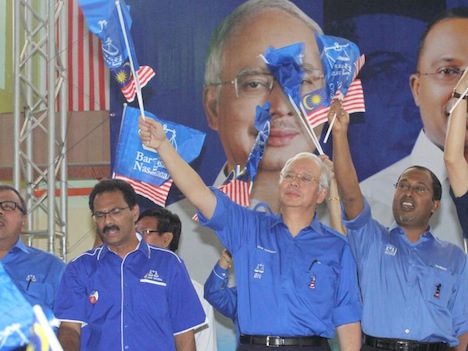Although you may be aware of Malaysia’s blockbuster elections yesterday and even elections held yesterday in the 60 million-plus Indian state of Karnataka, you may not have realized that French Polynesia also held elections on May 5.![]()
Polynésie française exists officially as an overseas country within the French republic — and its most well-known and populous component is the island of Tahiti (around 70% of the country’s population), though the entire French Polynesian nation comprises a huge group of islands over a wide swath in the south Pacific Ocean.
Though its population, at around 270,000 people, is less than you’d find in Iceland, French Polynesia’s islands cover an area larger than Europe, and they are a highly strategic holding for France, which has controversially engaged in nuclear testing on one of the islands, Fangataufa, most recently in 1995.
The high commissioner, Jean-Pierre Laflaquière, and the French government, which sits nearly 10,000 miles away, holds the final say on the ‘overseas country’s’ policy on justice, security, defense and even its education. That’s one reason why the independence movement has attracted more attention in recent years, including as in the lead-up to Sunday’s election for the territorial assembly.
Politics in French Polynesia is dominated by the personal rivalry between two leaders: its current president Oscar Temaru (pictured above) and the leader of the opposing, conservative, anti-independence Tāhōʻēraʻa Huiraʻatira (Popular Rally), Gaston Flosse. Flosse dominated local politics for decades until 2004, when Temaru first won local elections, though power has revolved among Flosse, Temaru and Flosse’s one-time ally, Gaston Tong Sang. Temaru leads the more leftist, pro-independence Tavini Huiraatira (People’s Servant), one of several parties that comprise the larger Union pour la Démocratie (Union for the Democracy) coalition that Temaru also heads.
Temaru has spent his entire political career of four decades in pursuit of one goal — full independence for French Polynesia. It’s a goal that Temaru appeared to be closer to achieving in the past couple of years, winning support from the French Polynesian assembly in 2011 for a petition to place French Polynesia back on the United Nations’s list of nations to be decolonized. Sunday’s result is widely seen as a result of discontent over an unemployment rate of between 20% and 30% and a poverty rate of around 20% throughout the islands rather than a rebuke against independence, though it’s hardly clear that Tahitians and the rest of French Polynesia remain incredibly enthusiastic about independence.
Following Sunday’s election, power seems likely to revolve once again from Temaru to Flosse, which means that the flickers of life for French Polynesian independence are likely to recede in the coming years. Continue reading Tahitians indifferent to independence movement in weekend elections



